
By : Chinasaokwu Helen Okoro
Prosecutors Seek Death Penalty for Ex-Bangladesh PM Sheikh Hasina
In a stunning turn of events that has sent shockwaves through South Asia, prosecutors in Bangladesh have demanded the death penalty for former Prime Minister Sheikh Hasina, accusing her of committing crimes against humanity during a brutal 2024 crackdown that left more than 1,400 people dead.
Hasina, who ruled Bangladesh for 15 consecutive years before being ousted in August 2024, stands accused of ordering security forces to open fire on thousands of student-led demonstrators demanding her resignation. The violent suppression of the protests, which began over a controversial civil service quota system, is now considered one of the deadliest episodes in the country’s history since its 1971 war of independence.
Chief prosecutor Tajul Islam, addressing a packed Dhaka courtroom on Thursday, declared that Hasina’s actions amounted to “mass murder” and that she deserved “1,400 death sentences—one for each innocent life lost.” He added, “Since that is not humanly possible, we demand at least one. Sheikh Hasina has shown no remorse for the atrocities she ordered. Her only goal was to cling to power at any cost.”
Prosecutors presented what they called a crucial piece of evidence—a leaked audio recording in which Hasina allegedly directed top commanders to “use lethal weapons” to crush the uprising. Hasina, now 77 and living in exile in India, has dismissed the recording as fabricated and politically motivated.
The student-led protests, which erupted in July 2024, initially targeted the government’s policy of reserving civil service jobs for descendants of freedom fighters. But the movement soon expanded into a broader demand for democratic reforms and Hasina’s resignation. Over several tumultuous weeks, the unrest engulfed Dhaka and other major cities, culminating in the storming of the prime minister’s residence on August 5.
According to investigators, police opened fire on demonstrators near the capital’s Farmgate district that day, killing at least 52 people. It was during this chaos that Hasina fled Bangladesh by helicopter, reportedly crossing the border into India within hours.
The former leader is being tried in absentia alongside former Interior Minister Asaduzzaman Khan Kamal and ex-police chief Chowdhury Abdullah Al-Mamun. Prosecutors have also demanded the death penalty for Kamal, who remains in hiding, while Chowdhury—who pleaded guilty in July—confessed to following government orders during the crackdown but has yet to be sentenced.
A state-appointed defence lawyer argued that security forces acted in self-defence after protesters turned violent, insisting that the charges against Hasina were driven by political vengeance. “This trial is not about justice; it’s about erasing Hasina’s legacy,” the lawyer said.
Hasina, once hailed as a symbol of stability and development, is facing an extraordinary downfall. Her government had been praised internationally for lifting millions out of poverty and turning Bangladesh into one of Asia’s fastest-growing economies. However, critics say her later years in power were marked by authoritarianism—marked by mass arrests of opposition leaders, curbs on press freedom, and rigged elections that cemented her dominance.
Today, Hasina’s Awami League has been banned from all political activity, while her long-time rival Khaleda Zia’s Bangladesh Nationalist Party (BNP) leads the race ahead of the February 2026 elections.
International rights groups, including Human Rights Watch and Amnesty International, have condemned both the 2024 violence and the ongoing legal proceedings, calling for an independent investigation into the killings of protesters and police. They have also warned that a politically driven verdict could further polarize the nation.
If convicted, Sheikh Hasina could become the first former leader in Bangladesh’s history to be sentenced to death while in exile—an unprecedented outcome that could reshape the country’s political landscape and strain its already fragile relations with neighbouring India.
For now, Bangladesh remains deeply divided between those who view Hasina as a ruthless autocrat who betrayed her people, and those who still see her as a visionary leader who built the nation’s modern economy but lost her way in the pursuit of power.



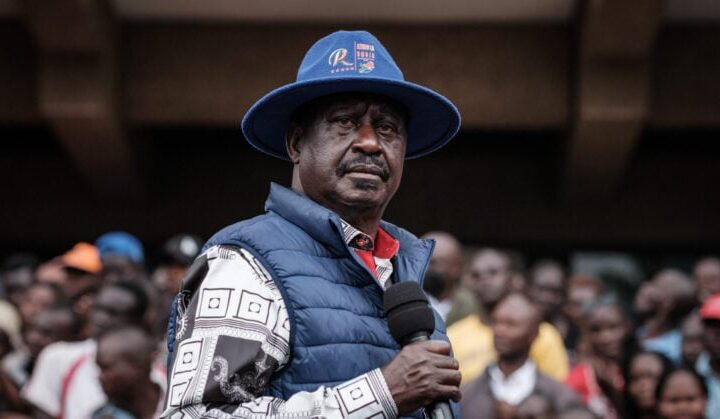 Raila Odinga: The Man Who Lost Every Election but Won Kenya’s Democracy
Raila Odinga: The Man Who Lost Every Election but Won Kenya’s Democracy 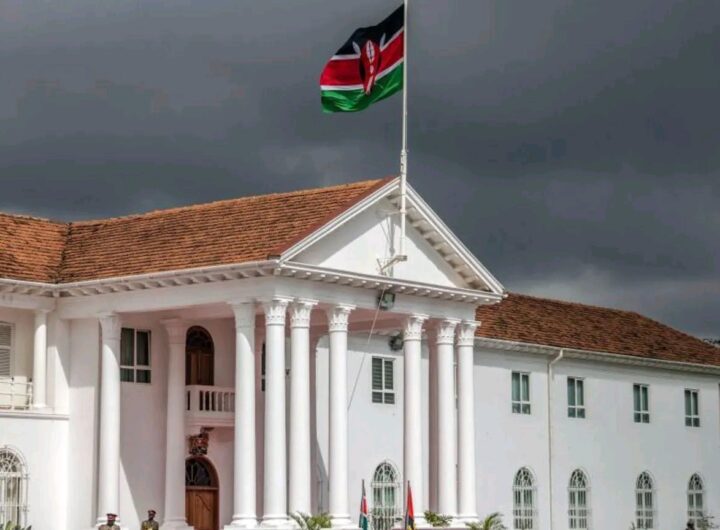 Police officer Stationed at President’s Official Residence Murdered in Attack
Police officer Stationed at President’s Official Residence Murdered in Attack 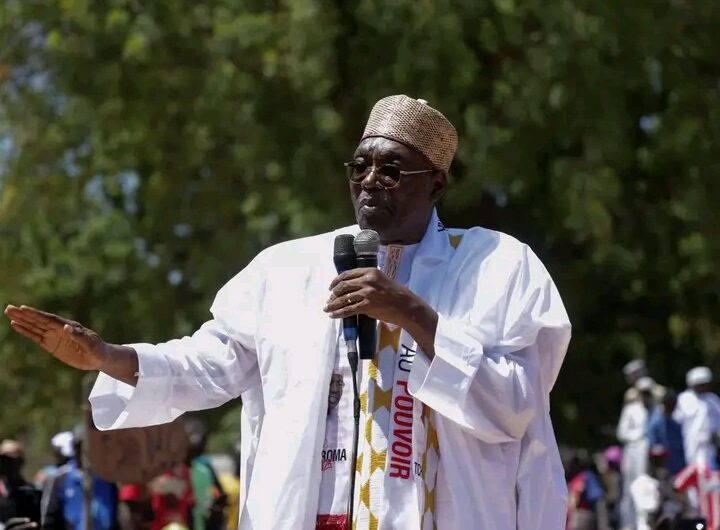 ⬆️ Cameroon Opposition Candidate Claims Victory as Biya Seeks 8th Term
⬆️ Cameroon Opposition Candidate Claims Victory as Biya Seeks 8th Term  PM Shehbaz Sharif Attends Gaza Peace Summit in Egypt Amid Ceasefire Deal
PM Shehbaz Sharif Attends Gaza Peace Summit in Egypt Amid Ceasefire Deal 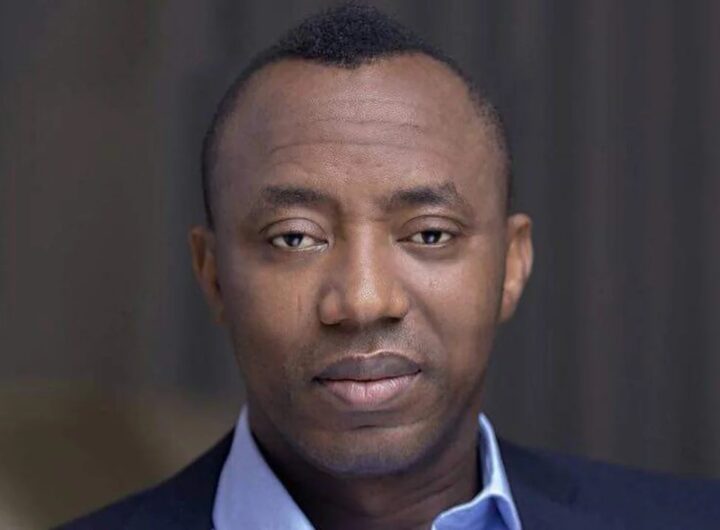 Nigeria’s Presidency, Sowore in Sharp Face-Off Over Planned March for Nnamdi Kanu
Nigeria’s Presidency, Sowore in Sharp Face-Off Over Planned March for Nnamdi Kanu 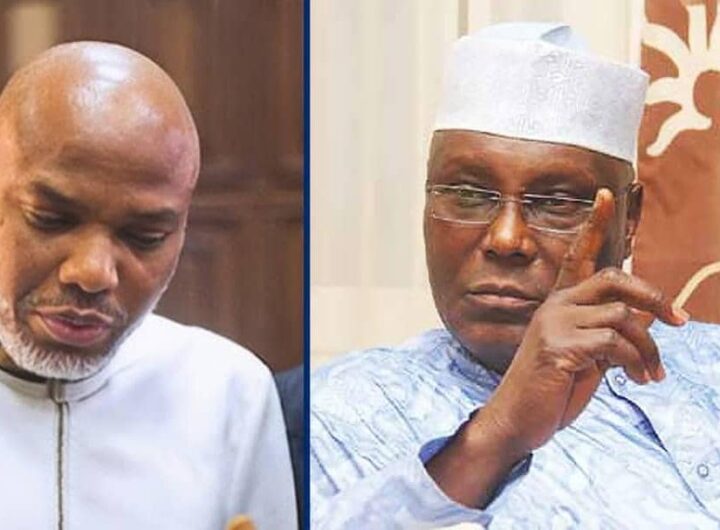 Atiku Faults Nigeria’s Handling Of Nnamdi Kanu’s Case, Demands Immediate Release
Atiku Faults Nigeria’s Handling Of Nnamdi Kanu’s Case, Demands Immediate Release 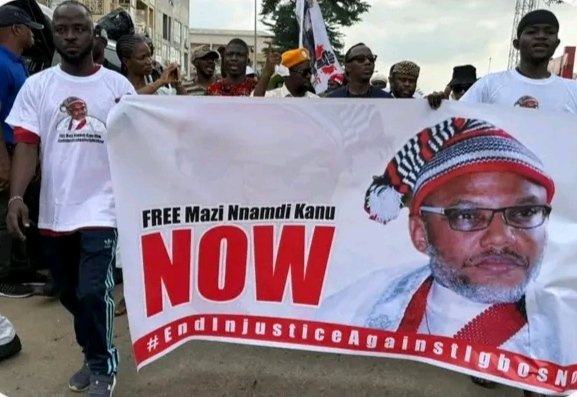 Nigeria’s Battle Over Nnamdi Kanu’s Freedom Turns the Courtroom into the New Protest Ground
Nigeria’s Battle Over Nnamdi Kanu’s Freedom Turns the Courtroom into the New Protest Ground  Eight Pupils Suspended After Brutal Bullying Video Sparks National Outrage in South Africa
Eight Pupils Suspended After Brutal Bullying Video Sparks National Outrage in South Africa  Nnamdi Kanu Opens Defence, Calls Wike, Umahi, Buratai, Others to Testify
Nnamdi Kanu Opens Defence, Calls Wike, Umahi, Buratai, Others to Testify  108 Years On: WWI Soldiers Finally Laid to Rest with Full Military Honours in France
108 Years On: WWI Soldiers Finally Laid to Rest with Full Military Honours in France